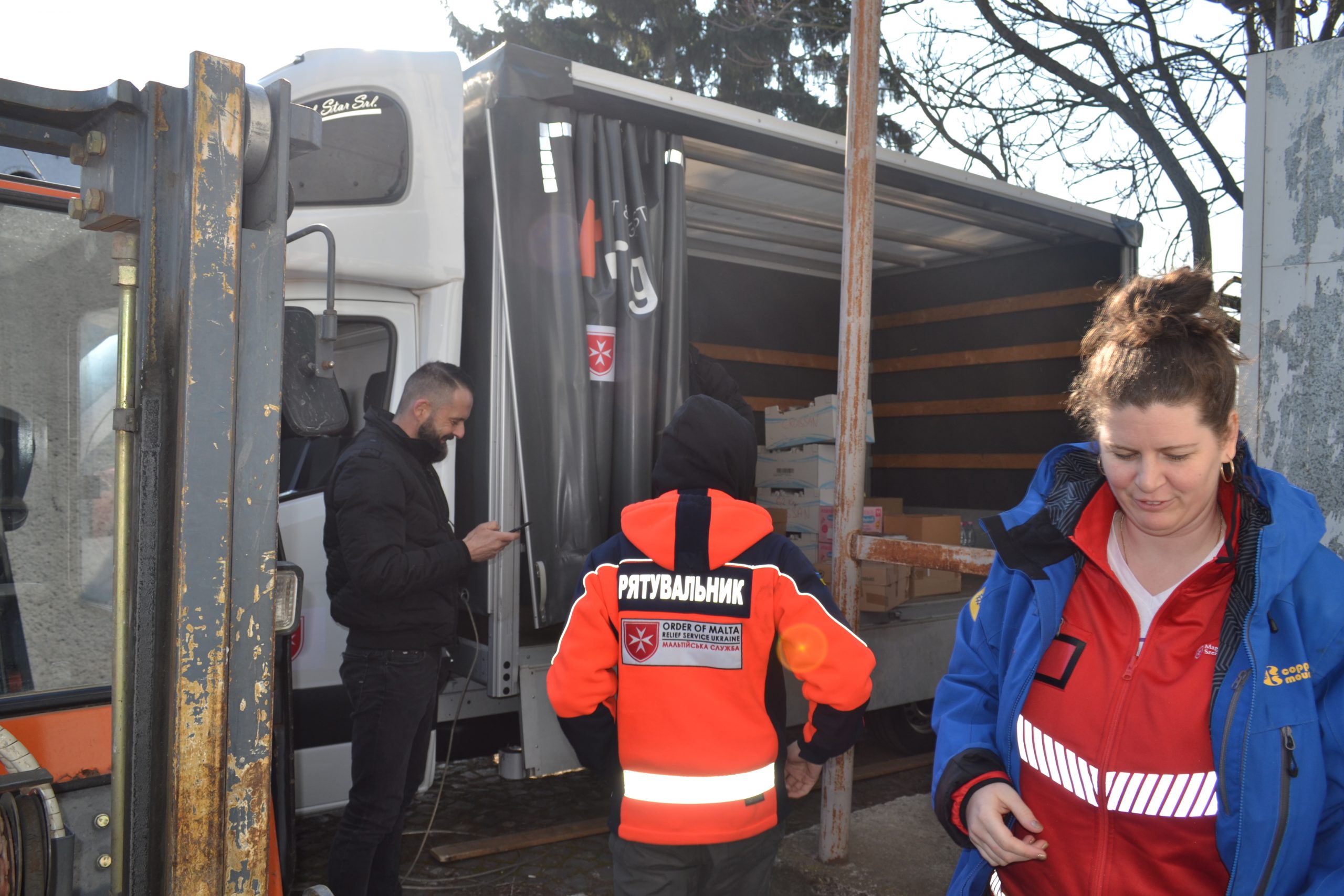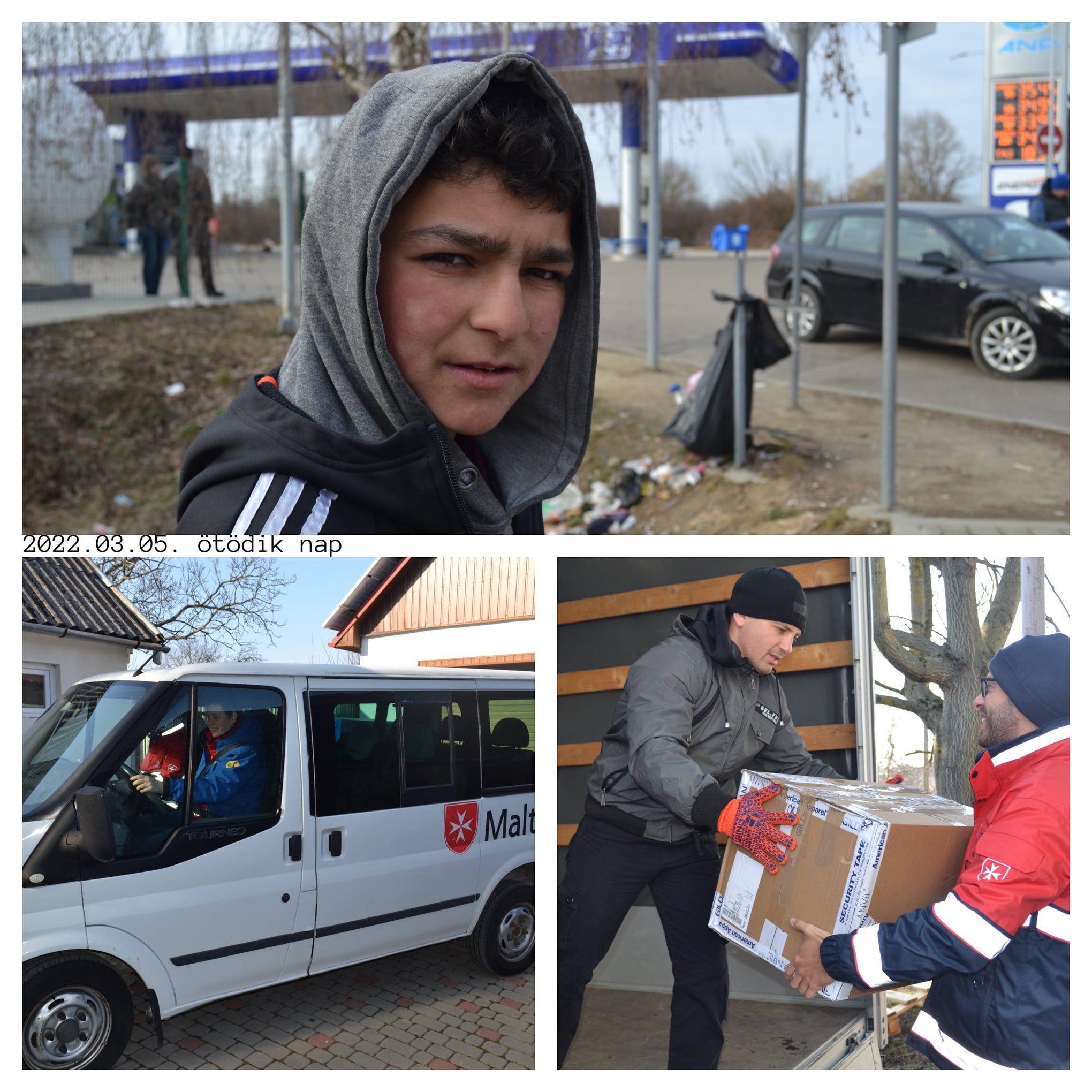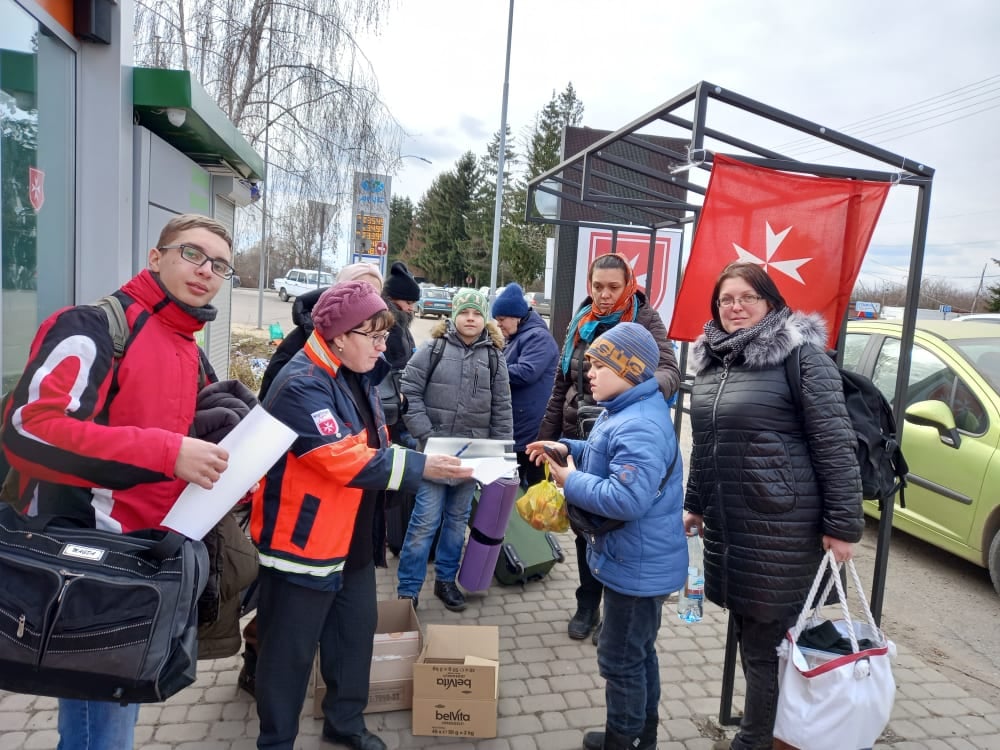Volunteers of the Order of Malta are deployed in the Transcarpathia region of Ukraine, which is an area separated from the rest of Ukraine by the Carpathian Mountains, for now isolated from the war. It is the second most important refugee transit route, the gate to Hungary and Slovakia. Transcarpathia has a large Hungarian-speaking minority.
The Berehovo district Charity service of the Order of Malta – one of four local auxiliary offices of the Order in Ukraine – has set up an information centre at the Astey border crossing, where volunteers provide assistance to refugees arriving at the border. Once they have crossed into Hungary, the staff of the Hungarian Order of Malta Charity Service continue to assist.
Most of the refugee families speak only Ukrainian. The Order of Malta Charity Service in Berehove has produced a simple Hungarian-language form, that they fill out for those waiting at the border, stating the number of family members and their ages, whether they have any illness that requires treatment, where they want to go, and other pertinent information requested. These forms can later be handed over by the refugees to Hungarian helpers, thus speeding up and facilitating their reception and the organisation of their onward travel through Hungary. Volunteers also support an orphanage in Uzhhorod, where children fleeing Kiev are being accommodated. Because of the food shortages volunteers regularly drive carloads of supplies.
This is an account of Maria Schumicky, a volunteer from Hungary, who is working with the Order of Malta office in Berehove, in Transcarpathia.
March 1. First day
Before leaving Budapest, I stock up in a shop to bring some food with me: once I am on the other side, I don’t want to subtract any food from the incoming donations. Once arrived I meet up with the head of the Malteser Charity service in Berehove, who is very tired but welcomes me with a warm smile into his home where he offers me a good meal and a freshly made bed. I feel welcomed and looked after by these people: the war is not far away but it hasn’t changed the hospitality and the tradition of welcoming guests in a dignified manner.
March 2. Second day
I get up at five o’clock and set off to the border. Once arrived I approach the cars that slowly drive by. I am with the other volunteers from the Order of Malta. We ask people if they want to eat or drink. We fill in the Hungarian-language forms with them.
A young man hugs a sobbing woman in a black coat. He comforts her. We ask if we can help. They are two families with many children. We fill in their papers. The men are staying in Ukraine as requested by the law. The women are leaving, friends are waiting for them in Graz. Now I must be strong, I mustn’t become emotional while watching them part, so I move away to give them some privacy. I pray for them silently.
Next, I see a blonde girl sitting in her car. Her name is Juliya. She pulls down the window. I give her some water; I ask if she wants anything else. She is crying bitterly. She says she fled Kharkov, but their parents stayed. She has a chinchilla with her. I reach inside the window and hug her. I hope that on the other side she meets someone who can help her psychologically. There is a mixture of despair and gratitude in her eyes. She goes into the unknown, and I assure her that Hungarians will welcome her and provide her with accommodation, food and security. I trust my compatriots that they will not let her down and that Juliya will receive a worthy welcome from us.
Then I see a Yemeni man with his wife and their two twins. Their papers are incomplete. They have already been sent back from the Polish border. I promise him I will say a prayer, that he should be let through here. An hour later, the car has not come back. Maybe they got through. I hope so.
A father accompanies his wife and two small sons and a teenage daughter to the border. They are walking. We promise the father that his family will be safe. He hugs his wife, whose face twitches in pain for a moment, but she quickly settles and by the time she unfolds from his arms, she is looking into his eyes bravely. She silently promises to keep the family together. The boys hug their father, the smaller one cries a little, but then they smile and wave as they go. The girl … she’s a teenager, she turns away. Dad reaches for her, but she slips out of his hands, goes forward and doesn’t look back. She doesn’t want to say goodbye, they are to meet again. The man remains behind and keeps looking at them as they move farther and farther away.
It’s only 9 a.m.
Later, we work in the office with Tünde. At last, we have secured a bigger warehouse, where we can stack all the donations that are coming through. The first shipments arrived tonight.
It was a long day. We did not change the world, but we tried to make it a little better. I know that at home, tonight my friends are praying for peace. I know that many volunteer companions are waiting to come to help. I know that the Father keeps His eye on us. Ukraine is not alone.
P.S. There are moments that cannot be, should not be captured: because human dignity is a fundamental right.













